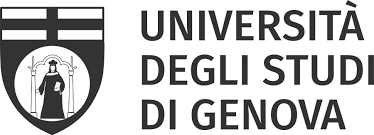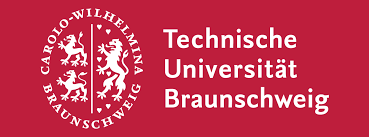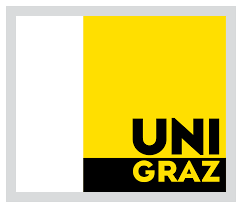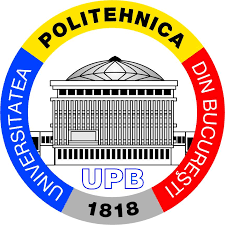Beneficiaries

Università degli studi di Genova
Principal scientist: Silvia Villa
Role: Secondment, Training, Degree Awarding Institution
With about 35000 students and 1800 faculty members, Università degli Studi di Genova (UniGe), located in Genoa, Italy, is one of the largest universities in Italy, organized in 5 Schools offering 125 First Degree courses and 90 Second Degree masters. The Mathematics Department (DIMA) and the Department of Informatics, Bioengineering, robotics, and Systems Engineering (DIBRIS) are both very active in both education and research activities. DIMA and DIBRIS have a strong research culture, with researchers of international stature. Regular research seminars and specialist meetings provide a stimulating research environment and opportunities to interact with international experts.

CentraleSupélec
Principal scientist: Jean-Christophe Pesquet
Role: Secondment, Training, Degree Awarding Institution
University Paris-Saclay (UPS) has more than 30,000 students and represents nearly 20% of all French research. It appears among the top 20 university clusters in the world. CentraleSupélec (CS) is a major player in the development of UPS. It offers a broad scientific spectrum, covering all Engineering and System Sciences. The research activities involve mathematics and their applications to Communication Systems, Energy, Environment and Risks, Aeronautics and Transport, Health and Bio-Engineering, Nano-Sciences, Business Systems. The Center for Visual Computing is one of the research centers of CS which is focused on research in Optimization for Artificial Intelligence.

Technische Universität Braunschweig
Principal scientist: Dirk Lorenz
Role: Secondment, Training, Degree Awarding Institution
Founded in 1745, TU Braunschweig is the oldest technical university in Germany. With about 20000 students and 2200 researches it is also the largest technical university in northern Germany. The university is organized in six faculties and offers studies in 75 different subjects. The mathematics department is active in diverse areas of applied mathematics and has developed a focus an mathematics for data science in recent years. Braunschweig is the center of the most research intense region in Europe and offers a dense network of research institutes and technology companies.

Systems Research Institute, PAS
Principal scientist: Ewa Bednarczuk
Role: Secondment, Training, Degree Awarding Institution
The Systems Research Institute of the Polish Academy of Sciences was founded in 1976 and has a long tradition of advanced research in the field of systems analysis, data analysis and knowledge discovery. Main research topics include, but are not limited to fuzzy logic and its applications, optimization and control problems, operations research, mathematics in finance, stochastic methods along with many applications of these topics in environmental research, regional planning, image processing and medical applications.

Universität Graz
Principal scientist: Kristian Bredies
Role: Secondment, Training, Degree Awarding Institution
The University of Graz, which was founded in 1585, is Austria's second oldest university and one of the largest in the country. Many excellent scientists, amongst them six Nobel laureates, have taught and researched here. With 31,000 students and 4,300 employees the University of Graz contributes significantly to the vibrating life of the Styrian capital. Its location in Europe encourages a lively scientific, economic and cultural exchange with South-East Europe, from which not only the city benefits, but also its educational institutions.

Universitatea Politehnica din București
Principal scientist: Ion Necoara
Role: Secondment, Training, Degree Awarding Institution
University Politehnica Bucuresti (UPB) is the oldest and most prestigious school for engineering in Romania, with a tradition accumulated in more than 190 years of existence. Currently more than 30,000 students are studying in 15 faculties. UPB maintains an outstanding record in teaching, research and innovation, with close interaction between research activities and industry. The TraDE-OPT researchers will be hosted in Department of Automatic Control and System Engineering, the best control department in Romania, which counts 31 faculty members and more that 40 researchers (Ph.D. students, post-docs, research collaborators).

Université catholique de Louvain
Principal scientist: François Glineur
Role: Secondment, Training, Degree Awarding Institution
UCLouvain (Université catholique de Louvain) is one of the oldest universities in Europe, and its main campus is located in Louvain-la-Neuve, southeast of Brussels, Belgium. The project takes place in the Applied Mathematics division of the Institute of Information and Communication Technologies, Electronics and Applied Mathematics (ICTEAM), home for more than 40 professors and 200 researchers carrying out both basic and applied research in key fields of information and communication technologies, electronics, computer science and applied mathematics. Research activities in continuous optimization (led by P.A. Absil, F. Glineur and Y. Nesterov) focus mainly on the algorithmic aspects of optimization and its applications.

Camelot Biomedical Systems
Principal scientist: Curzio Basso
Role: Secondment, Training
CAMELOT is a spin-off company of the University of Genoa founded in 2009 and active since 2010 in the market of medical device software, both developing its own solutions and providing high-tech innovation services to other companies. The core strengths of CAMELOT solutions have always been their flexibility, reliability and efficiency, achieved using innovative, proprietary computational techniques based on State-of-the-Art machine learning and optimization theory. Since 2013 CAMELOT is also employing its competences to provide predictive analytics solutions to enterprise customers, in a wide range of industries, from manufacturing, to retail, to telecommunications.